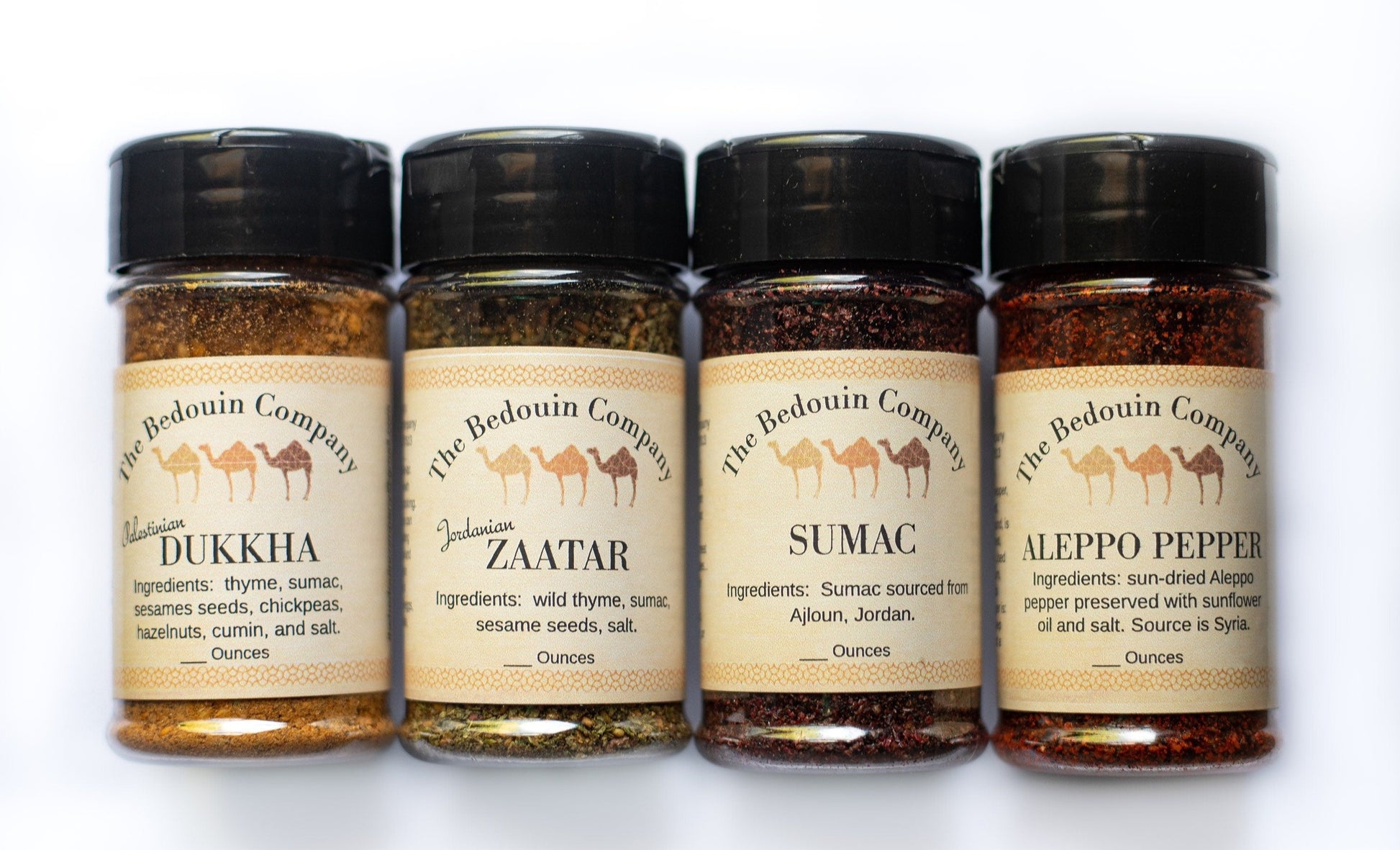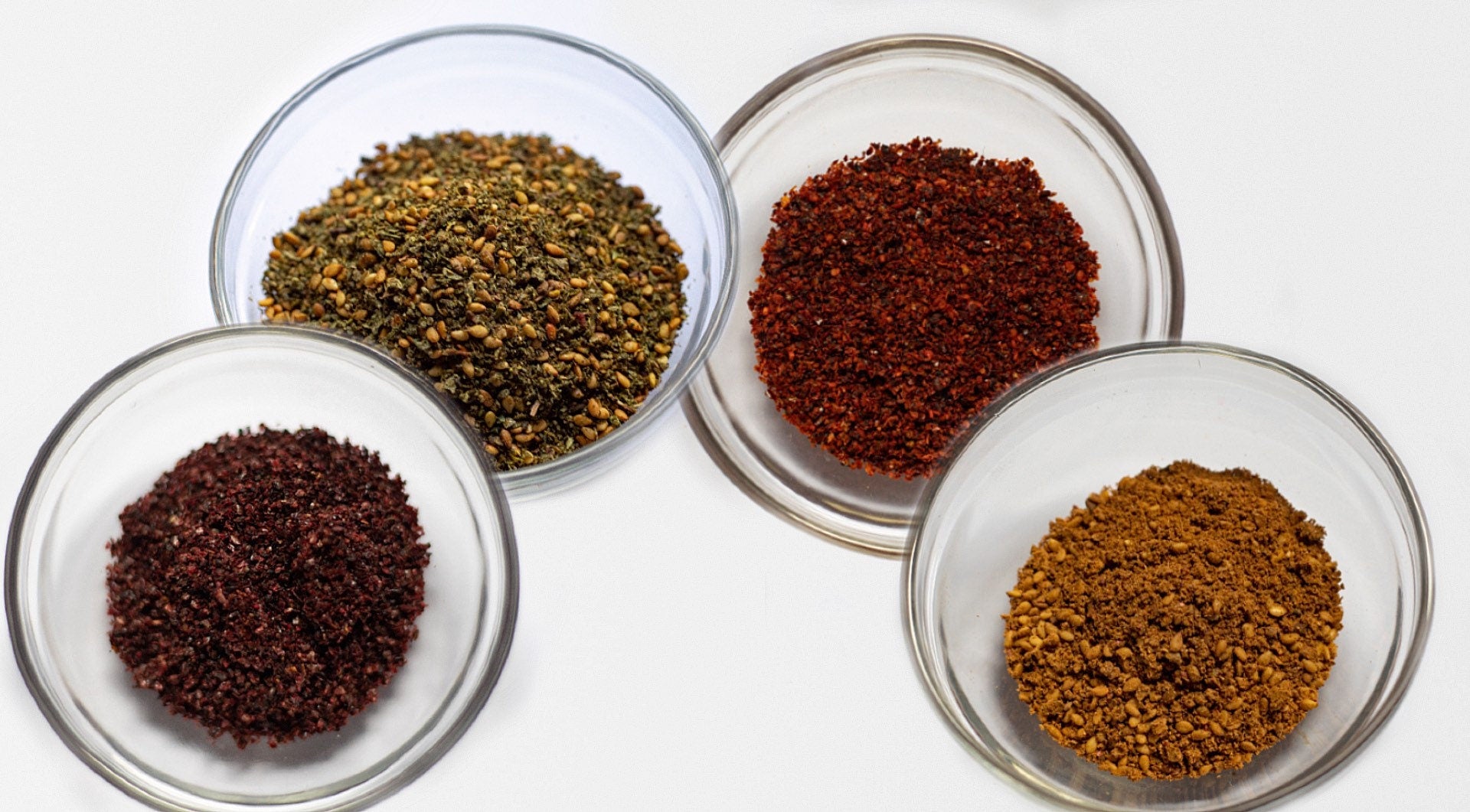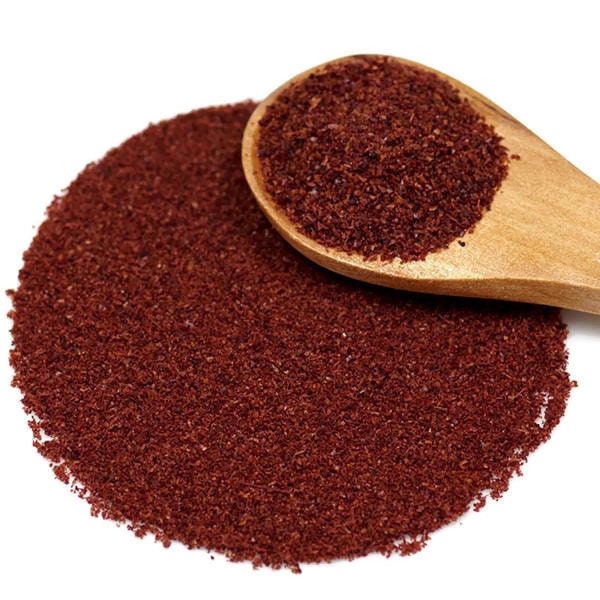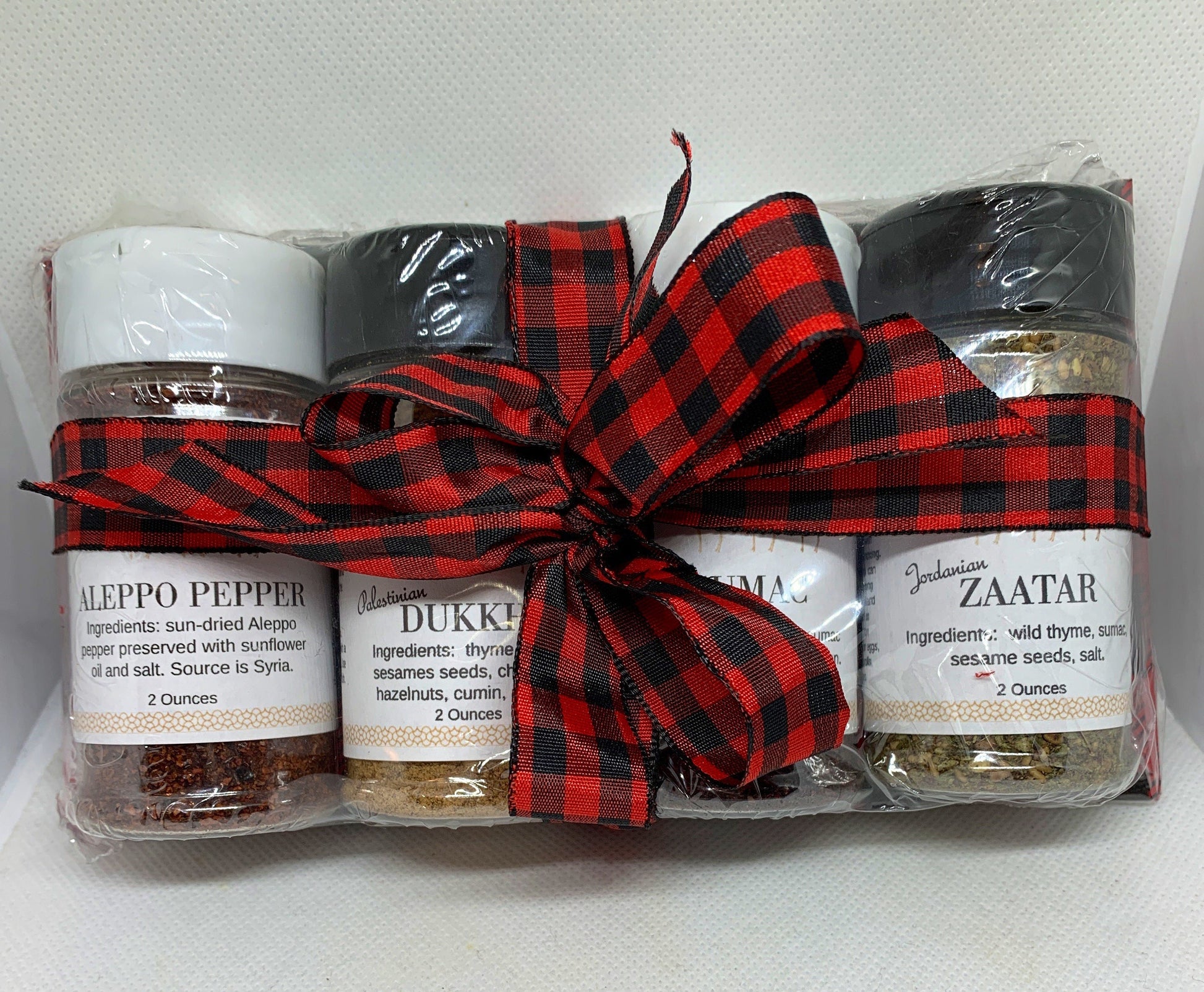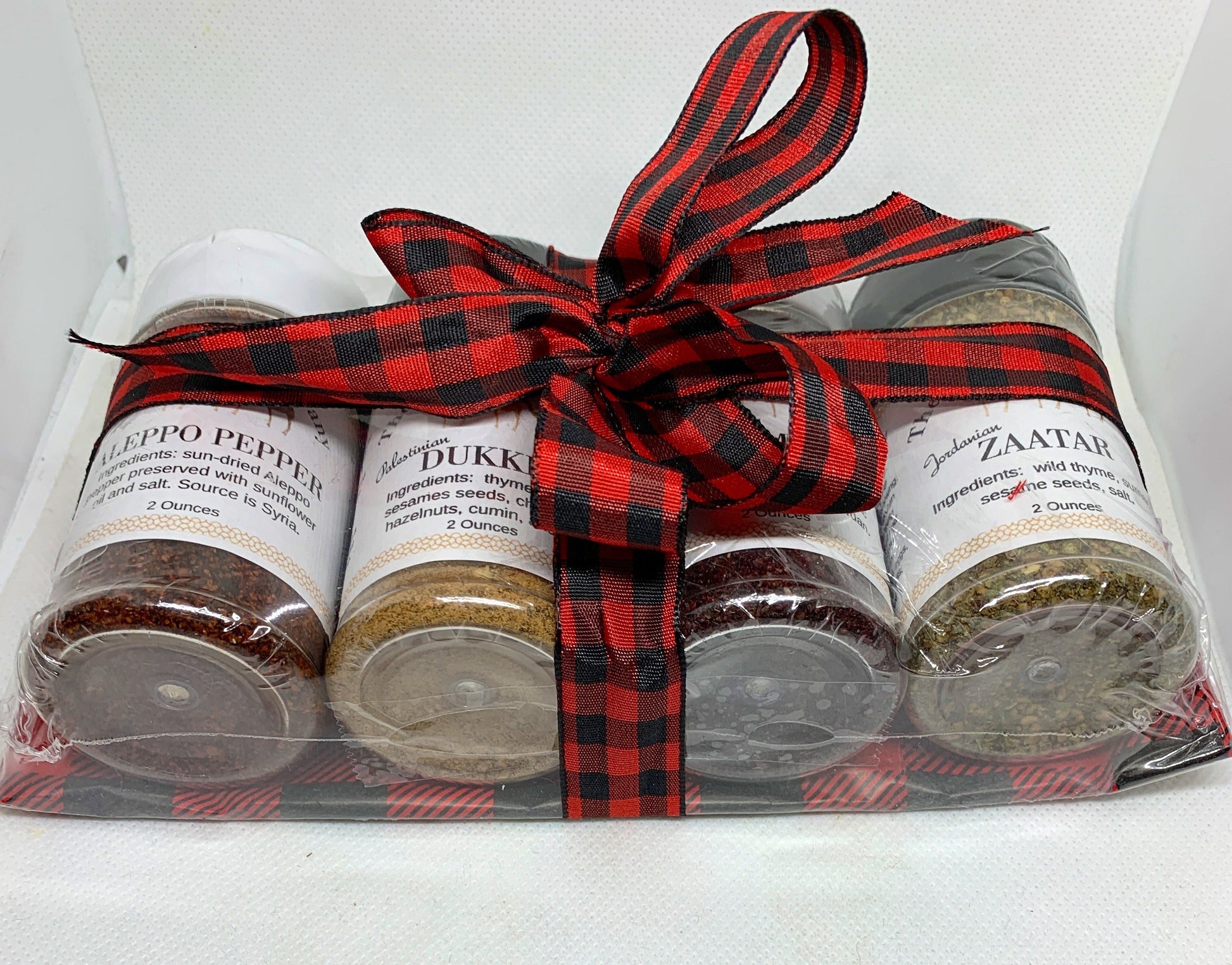The Bedouin Company
Set of Middle Eastern Spices: Zaatar, Aleppo Pepper, Sumac and Dukkha
Set of Middle Eastern Spices: Zaatar, Aleppo Pepper, Sumac and Dukkha
Couldn't load pickup availability
This set contains four popular natural spices and seasonings: Jordanian Zaatar, Syrian Aleppo Pepper, Jordanian Organic Sumac, and Palestinian Dukkha.
Spices come in BPA-free PET bottles.
ALEPPO PEPPER
Aleppo Pepper is sourced from Syria. It's named a city of Aleppo along the Silk Road in Northern Syria. The pepper has a moderate heat level and can substitute for chili pepper flakes. It’s great on pizza or pide (Turkish-style pizza), eggs, or any dish you want to “kick up” a bit with a little heat.
~~~~~~~~~~~~~~~~~~~~~~~~~~~~~~~~~~~~~~~~~~
JORDANIAN ZA'ATAR
I love, love, love this blend of za'atar. To me, it's the sumac that adds a bit of tartness. This is authentic Jordanian with its Levantine flavor and ingredients.
Its bold flavors compliment any dish. Sprinkle a little over cut potatoes and roast. Sprinkle on cream cheese before spreading on pita or a bagel. Use in combination with olive oil and dip pita bread. Sprinkle on salmon filets and bake. The possibilities are endless! Find our video on making za'atar manakeesh on YouTube at https://www.youtube.com/watch?v=XkQneRc-nT0&t=22s,
Za’atar is a name for “wild thyme” in Arabic, but it also an aromatic herbal blend of herbs. An unadulterated version would include wild thyme, sumac, sesame seeds and [possibly] sea salts. The spice originates in the Middle East, but it is gaining popularity in the USA. With the growing popularity comes the varieties.
~~~~~~~~~~~~~~~~~~~~~~~~~~~~~~~~~~~~~~~~~~
ORGANIC JORDANIAN SUMAC
The flavor is tart and fruity, but has a bit of iron, or savory tang, to it.
Sumac comes from the berry part of a sumac tree or shrub, of which there are about 35 species deriving from the genus Rhus. (Berries from some of those species can cause skin irritation, so best leave the harvesting to the experts.) Native Americans used sumac as a healing agent. More than 2,000 years ago, the Greek physician Pedanius Dioscorides wrote about the health properties of sumac in is epic tome, De Materia Medica, and doctors used it for centuries as an astringent, antiseptic, and tonic. In the Middle East, it’s used as a spice.
It’s cultivated by drying the berries then grinding with a little salt and water resulting in a paste that is sun-dried or heat-dried to “cure.”
It’s used in salads, like Fattoush and cucumbers, used on grilled meats and fish. It also enhances hummus when sprinkled on top. Because it has an acidic or citrus quality, it’s even used in desserts.
~~~~~~~~~~~~~~~~~~~~~~~~~~~~~~~~~~~~~~~~~~
PALESTINIAN DUKKAH
Dukkah from West Bank, or Dugga to Gazans, is a blend of spices (cumin), grains (wheatberries), legumes, nuts (hazel), and sometimes herbs. Like its cousin, zaatar, it can be enjoyed with olive oil and warm pita. The word "Dukkah" comes from the Arabic word ‘to grind,’ referring to how this blend was originally made.
Share
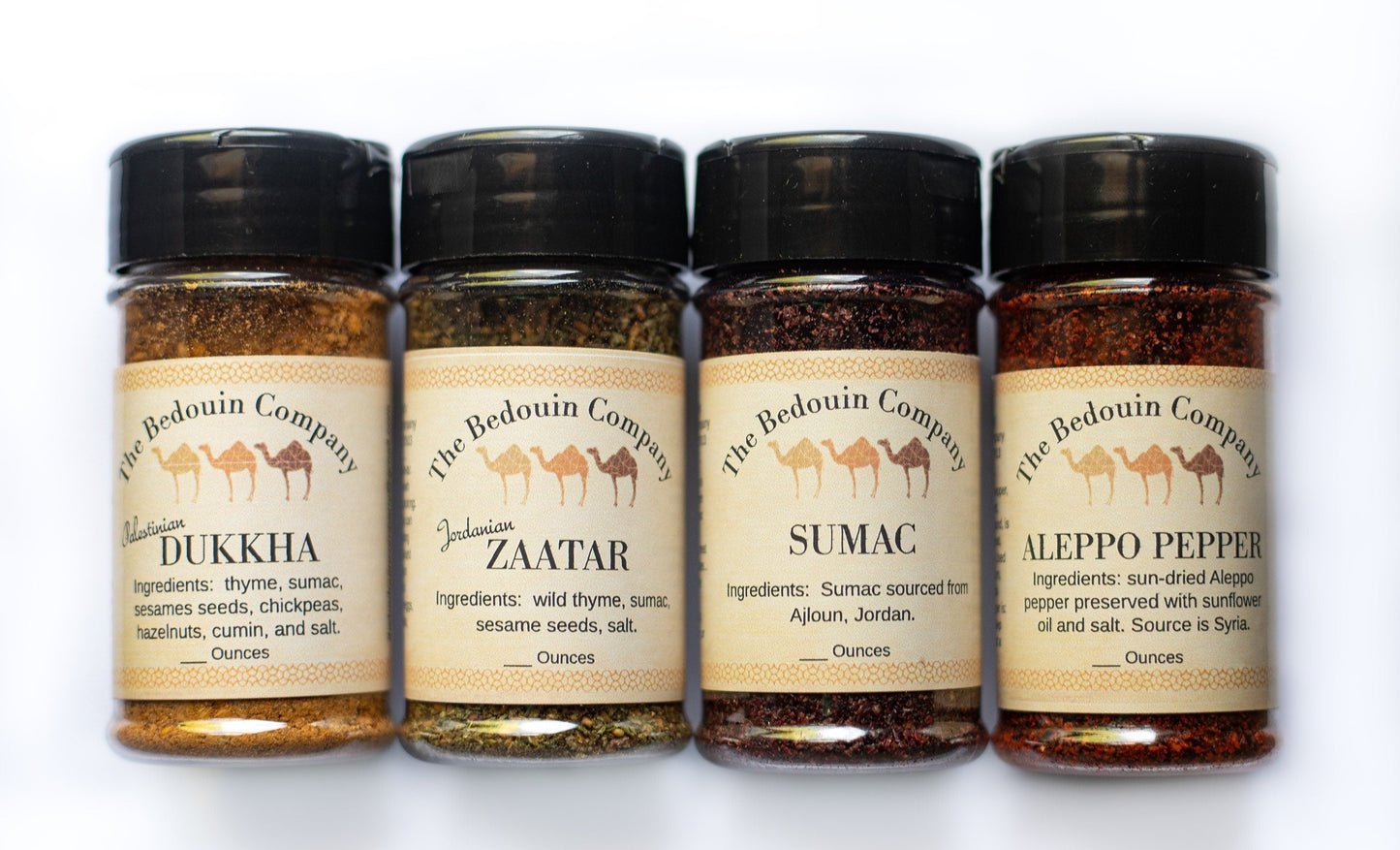
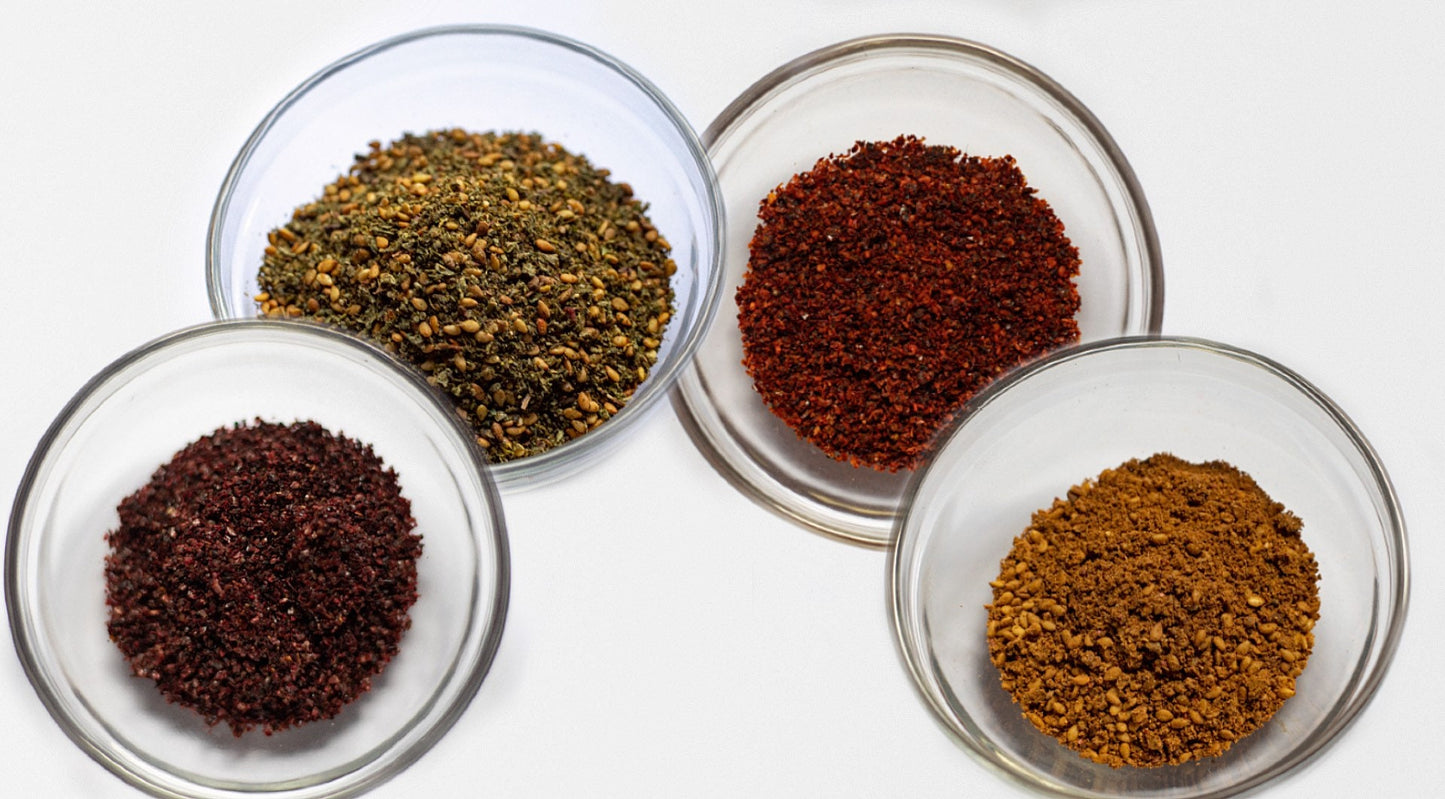
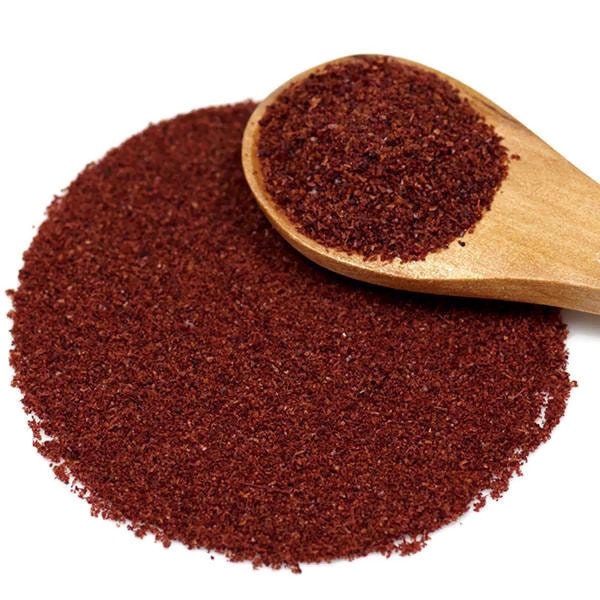
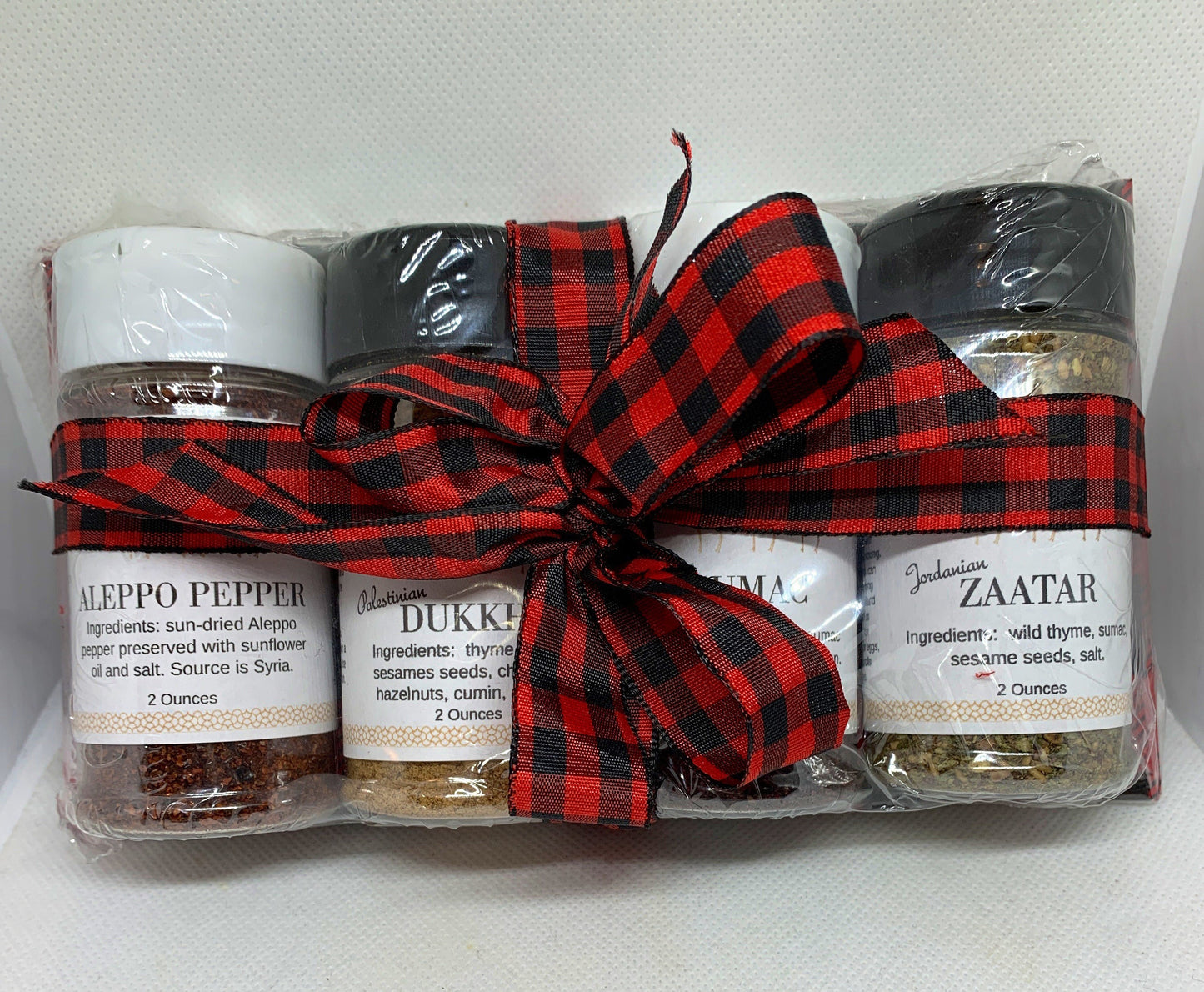
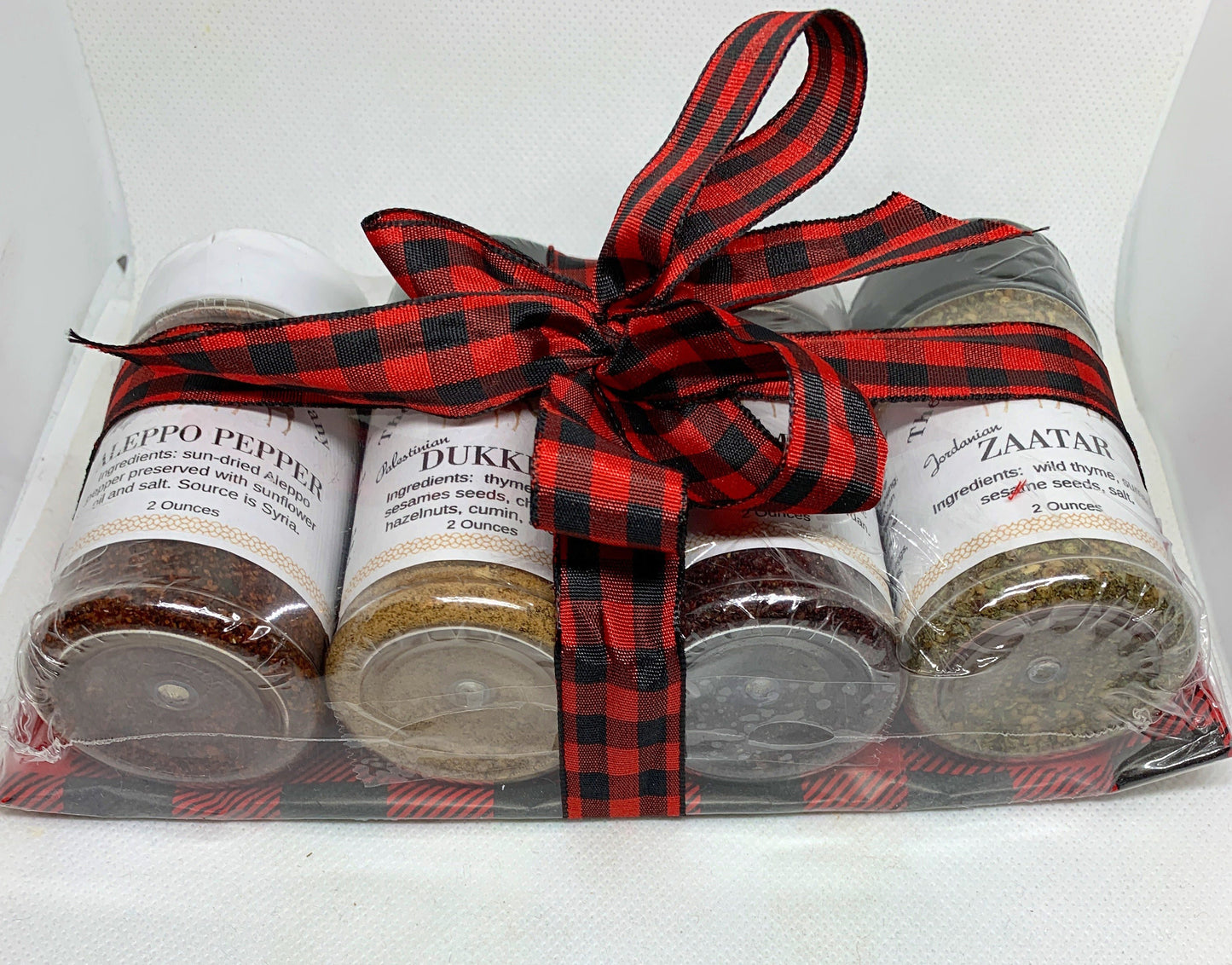
Introduce your content
Answer your customers' common questions
List a frequently asked question
Then provide an answer that will help your customer make an informed purchase.
